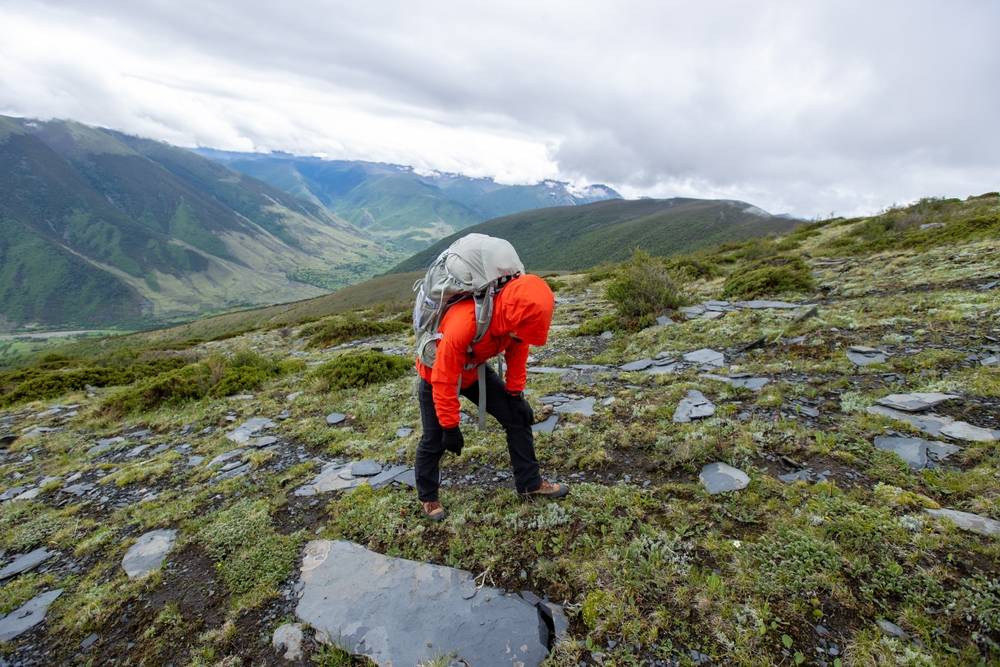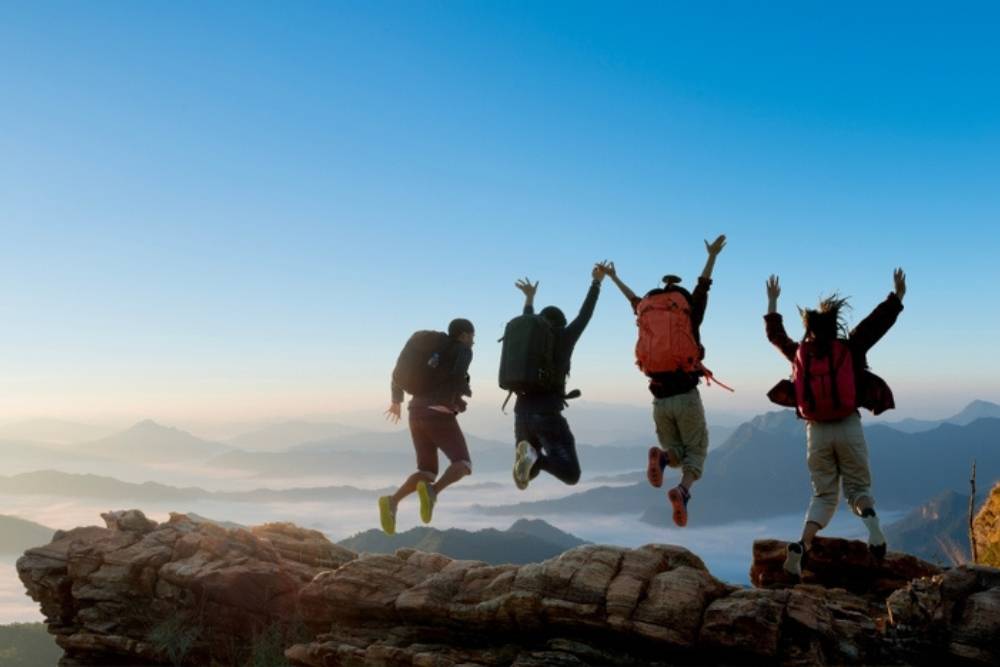December’s festive season inspires many to step out of their comfort zones and embark on adventurous trips. Whether it’s trekking through snow-covered mountains or exploring tropical rainforests, adventure travel promises unique experiences.
However, the thrill of exploration comes with its own set of challenges. Being prepared is essential to ensure your journey is both memorable and safe. Don’t forget to read til the end of the article for your very own adventure travel checklist so you can feel adequately prepared before each trip.
Understanding the Risks of Your Adventure Travel Destination
Each destination has unique risks. In tropical regions, diseases like traveller’s diarrhoea, malaria, and typhoid fever are common and transmitted via contaminated water or food.
Dr Michelle Lee, Medical Director at Fullerton Health, explains, “Even something as simple as brushing your teeth with untreated water can expose you to Escherichia coli, the most common cause of traveller’s diarrhoea.”
In addition to infectious diseases, environmental hazards such as heatstroke, hypothermia, and injuries from activities like climbing or rafting are significant risks. High altitudes bring their own dangers, particularly for travellers with underlying cardiovascular or respiratory conditions.
Consult a travel doctor early – at least four to six weeks before departure. Vaccinations, such as Hepatitis A and yellow fever, and preventive medications like anti-malarials or altitude sickness pills may be necessary depending on your itinerary.
Dr Paul Chang from Regis Medical also shares his advice: “Preparing early allows time for vaccinations to take effect and ensures personalised advice for managing pre-existing conditions.”
Read also: Top 5 Travel Vaccines Every Globetrotter Should Know About
Packing for Health and Safety
On top of the pre-trip preparations, a comprehensive medical kit tailored to your destination is also non-negotiable. It should include antiseptics, pain relievers, anti-diarrheal medications, and prescription medicines.
For outdoor adventures, outdoor essentials like insect repellent and high-SPF sunscreen are also invaluable.
Packing isn’t just about medical supplies. Adventure travel requires attention to nutrition and hydration as well.
High-calorie snacks like nuts, dried fruits, and energy bars are excellent for sustaining energy during physically demanding activities. Consistent hydration is equally critical, particularly in hot environments. Dr Chang suggests aiming for at least three litres of water per day, supplemented with electrolyte drinks to replenish lost minerals.
Navigating High Altitudes during Adventure Travel

For those planning to conquer high-altitude destinations, acclimatisation is key to avoiding altitude sickness. Symptoms like headaches, nausea, and fatigue can appear even at moderate elevations.
“Altitude sickness is not to be taken lightly; even mild symptoms can escalate if ignored,” warns Dr Lee. In the case of severe symptoms such as confusion or shortness of breath, immediate descent is necessary, as these could indicate life-threatening conditions like high-altitude pulmonary edema (HAPE) or cerebral edema (HACE).
What You Should Do
When it comes to high altitudes, gradually ascending and allowing your body time to adjust can help to alleviate symptoms.
Dr Lee also emphasises the importance of altitude-specific items: “Altitude sickness medications like acetazolamide* should be part of your kit if you’re heading to high elevations.”
*Do note that acetazolamide is a prescription medication in Singapore, and should be obtained through a medical doctor.
Diet also plays a role in altitude readiness. A high-carbohydrate diet and avoiding alcohol can help the body adapt more effectively.
The Safety Net of Travel Insurance
And with all things travel-related, travel insurance is a must-have for any adventure trip. It provides a safety net in case of emergencies, covering everything from medical evacuation to hospital stays.
Jonathan Ong Yong Sheng, a financial services consultant under AIA Singapore, advises travellers to select policies that explicitly cover adventure activities like scuba diving or trekking.
“Comprehensive insurance is especially vital for high-risk activities in remote locations where evacuation might require helicopters,” he commented.
Comprehensive policies that include trip cancellations, lost gear, and personal liability are also worth considering. Travellers with pre-existing conditions should ensure these are covered, as emergencies related to chronic illnesses can be costly and complicated without adequate insurance.
Staying Nourished and Hydrated
Maintaining energy and hydration levels is essential during physically demanding activities. In hot or dry environments, the body loses water rapidly, making dehydration a serious concern.
Carrying a reusable water bottle and sipping regularly can help prevent this. “Adding electrolytes to your water is a simple yet effective way to replenish lost salts and minerals,” suggests Dr Chang.

For nutrition, energy-dense foods like trail mix, hard cheese, and jerky provide sustained fuel for active days. Energy bars are a convenient option for quick boosts. Avoid overly processed or sugary foods, which can cause energy crashes during long treks or climbs.
Summary: Your Adventure Travel Packing Checklist
Keep this list handy for your upcoming adventure travel – and your future ones too!
Medical Kit:
- Antiseptic cream and first aid items
- Pain relievers
- Anti-diarrhoeal medication
- Altitude sickness medications (if applicable)
- Personal prescription medication
Outdoor Essentials:
- Sunscreen (high SPF)
- Insect repellent
- Oral rehydration salts
Travel Supplies:
- Reusable water bottles (preferably with a filter)
- High-calorie snacks (nuts, dried fruits, energy bars)
- Hydration aids like electrolyte powders and oral rehydration salts
Documentation:
- Comprehensive travel insurance policy
- Vaccination records (get vaccinated at least 4-6 weeks prior to your trip)
Final Thoughts
Adventure travel offers a chance to step into the unknown and experience the world in its raw beauty. However, this requires thoughtful preparation to ensure safety and well-being.
As Dr Lee puts it, “Adventure travel is about creating memories, but the right preparation ensures those memories are of the journey, not the mishaps.”
By understanding the risks of your destination, packing a well-stocked medical kit, preparing for altitude challenges, securing comprehensive travel insurance, and prioritising hydration and nutrition, you can embark on your December getaway with confidence.
Adventure is calling—answer it wisely. With careful planning and a little expert advice, your next trip can be the adventure of a lifetime!
Have a pressing question for a doctor? Medical Channel Asia has launched a community forum page where you can get questions answered by a medical specialist. Visit the community forum here.

